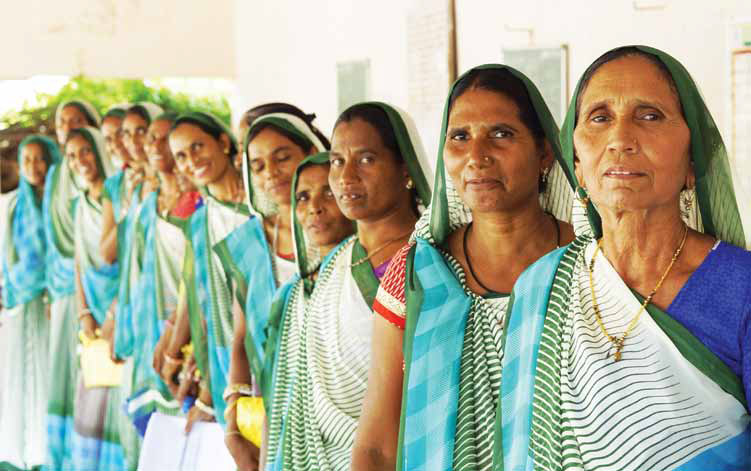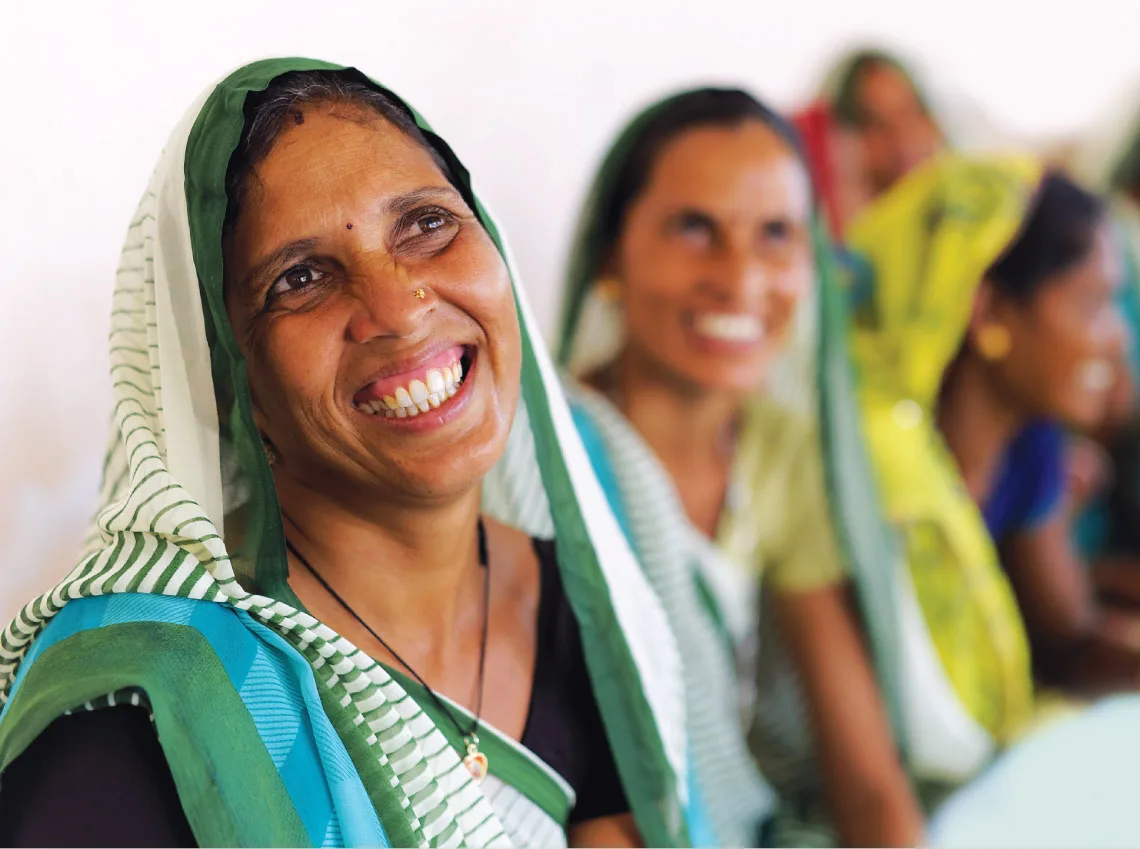Change is calling
A women’s collective in Gujarat has supported its members in becoming successful farmers — and in breaking social taboos
The Sabarkantha and Banaskantha districts of Gujarat lean towards the patriarchal. Families don’t encourage their women to go out and work. Instead, they have to handle the house, help male members with farming and manage animal husbandry duties. They have their hands full, but their pockets tend to be empty.
Even though the population in these districts is largely tribal — the Dungri Bhil community — where women are less governed by traditional norms, working outside the home is still frowned upon.
Things have changed over the past years, or have been forced to. With men migrating out of the districts to find employment, women have had to take charge of the household, including agricultural responsibilities. The burden was heavy and a helping hand was more than welcome.
That was provided in 2015 when Collectives for Integrated Livelihood Initiatives (CInI), a partner organisation of the Tata Trusts, set up the Sabar Aart Farmer Enterprise (SAFE) producer company in collaboration with the Vikram Sarabhai Centre for Development Interaction, the charitable trust.
SAFE zone
- SAFE covers 274 hamlets in 52 villages in Gujarat’s Sabarkantha and Banaskantha districts
- It has 4,549 women farmers as members, who are helped in accessing agricultural inputs, water and other resources
- SAFE has registered a turnover of ₹102.96 million over the 2020-25 period. In, 2024-25 the turnover is ₹30.3 million
An all-woman organisation, SAFE has 4,549 members from 52 villages spread across Sabarkantha and Banaskantha. It caters entirely to small and marginal farmers by enabling the creation and sustenance of livelihood opportunities.
“Having worked in the agriculture sector in the Khedbhrama tribal area [in Gujarat] for a long time, we found that women engage in most of the farming work, but this work is invisible and they hardly get any money for their efforts,” says Virendra Vaghani, area manager for CInI’s livelihoods programme in Gujarat.
Collectivisation was the solution, adds Mr Vaghani: “With more migration by men, the involvement of women in numerous activities in the agricultural value chain was increasing. We felt that collectivising them in a farmer producer organisation (FPO) would reduce gender inequalities, empower them and get them some income.”
Welter of woes
While the vast majority of households in the project area are engaged in cultivation, the average landholding size is an acre or less. Farmers had to travel far to get quality agricultural inputs — seeds, saplings, fertilisers, pesticides, etc — and find a market for their produce. That led to many of them distress-selling their land and getting out of agriculture altogether. Annual incomes were stuck at about ₹40,000.
“We had struggled with setting up men’s cooperatives,” adds Mr Vaghani. “We were already promoting and nurturing self-help groups and village organisations for women. We found them to be more committed to organising regular meetings and managing finances effectively and transparently. It made sense to start a women’s collective.”
SAFE works with women from 274 hamlets in a cluster-based approach that covers productivity enhancement, livestock development, microfinance and community organisations.
The FPO makes agricultural inputs available to women farmers practically at their doorstep through collection centres in every village cluster. These centres also act as the nodal point for the procurement of produce, which is directly sourced from the farmers and sold. SAFE is involved at every stage of the process, from seed to sales.
One major challenge SAFE faced is water scarcity. Although the Sabarmati passes through the region, most households are set too far back from the river. Others are located on hilly and rocky terrain where the water cannot reach or even be retained. “The groundwater level is also low, negating a lot of irrigation options,” says Mr Vaghani.
Farmers like Veenaben Dawada have had to find their way around this problem, and SAFE has been a help. A 48-year-old from Patadiya village in Sabarkantha, Ms Dawada lost her husband some years ago. The family had only their 1.2-acre plot to fall back on and rainfed cultivation of maize and vegetables just wouldn’t cut it.
Ms Dawada decided to make two big changes to her farming. First, she switched to growing more lucrative commercial cotton and groundnut, which would also be less water-intensive. Second, she decided to dig a borewell to irrigate her fields, and invited her neighbours to share the water.
“Water scarcity was a looming problem,” says Ms Dawada. “When I did rain-fed farming, my crops would die in the field because of too much or too little rainwater. That’s why my borewell helps, and now, because of a watershed programme initiated by CInI, the groundwater has also increased.”

CInI has trained the SAFE farmers to employ all kinds of water options: drip irrigation, lift irrigation, furrow ridge and more. It has also encouraged the FPO members to grow and deal in several value-added — and lucrative — products currently, such as residue-free lentils (black gram, green gram, etc), turmeric powder and cattle feed.
Ms Dawada is one among many who have benefitted as a result. And she has had some good seasons lately. Earlier, when the family did not have much surplus to sell, their annual income was ₹30,000-35,000. After switching to cotton, they make more than ₹100,000 a year. Enough for Ms Dawada to hire farmhands to relieve her of the backbreaking work she had to do earlier.
Thanks to the support of SAFE, Ms Dawada can now concentrate on growing her business and then some. “I want to bring more women into the fold and collaborate with them to open a tailoring unit,” she says. “I plan to start packaging and selling tea as well.”
For Rinaben Rathod, SAFE has provided a stairway to self-improvement. The 36-year-old resident of Khandurumbri village in Banaskantha district is a member of SAFE’s board of directors. For the last 10 months, she has been travelling to Ahmedabad for two or three days of training every month.
For a woman who was not previously allowed to step out of her house, except to assist her husband in cultivating their field, Ms Rathod has fought hard to be ‘allowed’ this freedom.
“The elders in my family were dead against me leaving the house,” she says. “It took a lot of convincing for them to even let me join SAFE. But once they saw the good work being done, and how it was helping so many women farmers become successful, they gave in.”
Ms Rathod travels quite a bit within the cluster of villages she is in charge of, calling farmers to regular meetings and training sessions, facilitating agri-inputs for them and passing on information about new technologies that they can use.
“The work I do is liberating,” says Ms Rathod, “and it would never have been possible without SAFE. What our FPO has done goes beyond agriculture; it has brought social change to our lives.”
